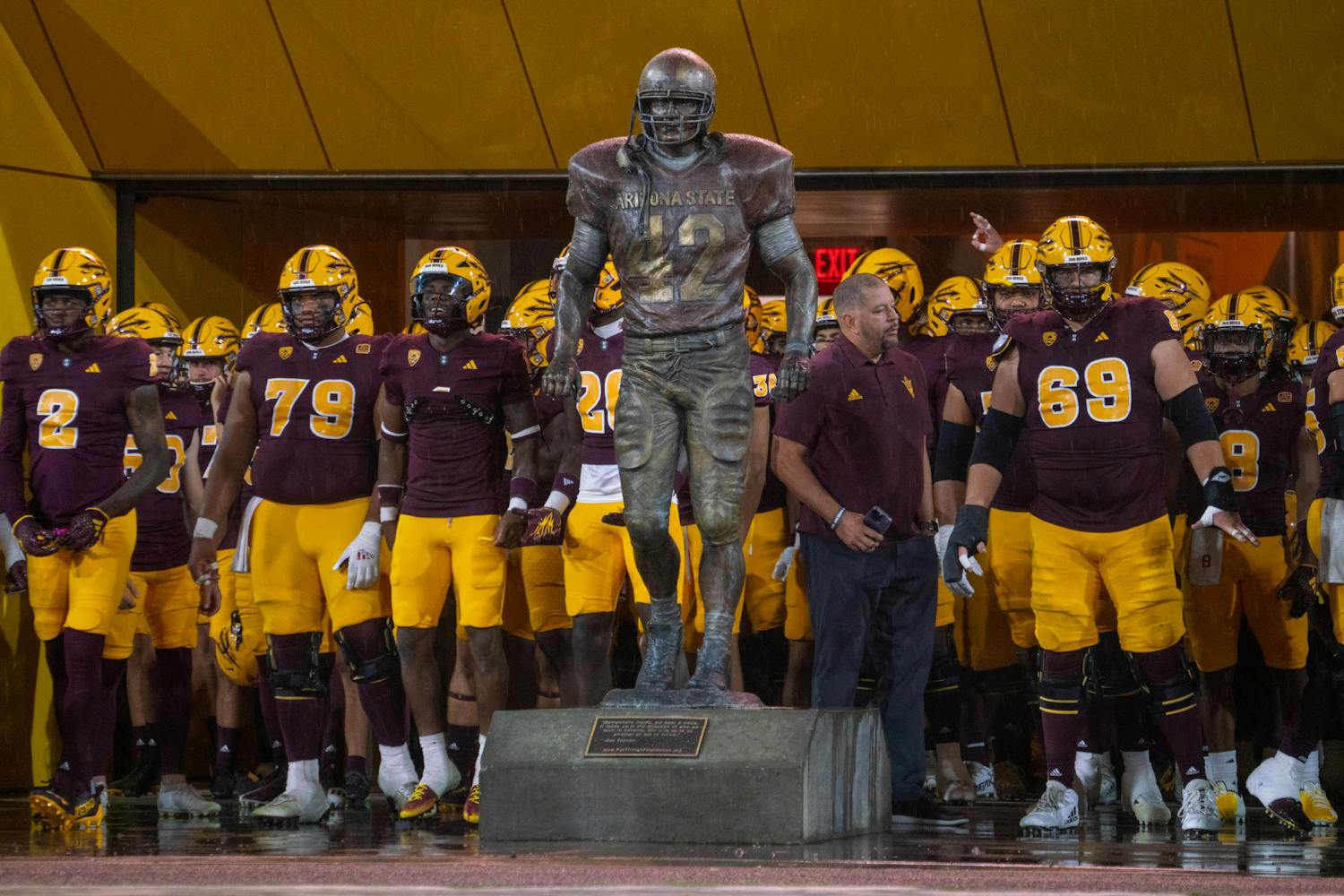Environmental groups accused an ASU professor of having a conflict of interest that tainted his research and teaching after leaked documents in February revealed the professor’s connection to the spread of information questioning the use of fossil fuels as a cause of climate change.
Documents from the Heartland Institute named Robert Balling as a tentative author of “Climate Change Reconsidered” in its 2012 budget plan. Balling is a professor in the School of Geographical Sciences and Urban Planning whose research deals with climatology and global climate change.
The publication would be the third in a series of reports published by the Nongovernmental International Panel on Climate Change, an international group of scientists criticizing the accuracy of reports.
The NIPCC said in its 2011 report that climate change is natural and greenhouse gases are not playing a substantial role in the warming of the planet.
According to the Heartland Institute’s 2012 budget and fundraising strategy, Balling receives $1,000 per month from the organization.
The documents were leaked by Peter H. Gleick, founder and president of the Pacific Institute for Studies in Development, Environmnet and Security.
Gleick stated in a Huffington Post blog post that he posed as someone else to get the documents, which have resulted in widespread scrutiny of professors and companies such as Microsoft.
Balling spoke about his climate research at a Heartland Institute luncheon in New York in 2008 and has not been involved with the organization since, he said.
“It’s completely unfair to someone like me,” Balling said. “I think there is a human impact on climate. I’d never deny that.”
Greenpeace is calling for a formal investigation into Balling’s research, pointing to a history of having conflicts of interest.
In a letter to ASU President Michael Crow, Greenpeace Executive Director Phil Radford requested documentation that Balling submitted proper background documents for his research.
If he was receiving funds from the Heartland Institute, Balling would have been required to submit these forms following his receipt of a National Science Foundation grant, Radford said in the letter.
ASU responded to the letter and is looking into Balling’s involvement with the Heartland Institute, but the material presented does not show that Balling was taking money from the Heartland Institute, said Virgil Renzulli, vice president of public affairs at ASU.
“The documents do not support the accusation,” Renzulli said. “At first glance, there seems to be nothing to it, but we’ll look into it further.”
Greenpeace has not received the documentation it requested, said sustainability and philosophy sophomore Erica Kris, ASU’s campus coordinator for Greenpeace and president of Sun Devils for Wildlife Conservation.
“We want a formal investigation to go into his practices just to see whether or not he is teaching his students misleading information about climate change,” Kris said.
Balling’s potential conflicts of interest go back 15 years.
In 1997, Ross Gelbspan discounted several climate scientists, including Balling, in his book “The Heat is On.”
The Star Tribune wrote an editorial about the information presented in Gelbspan’s book, attacking Balling’s reputation, and Balling challenged the publication’s portrayal of him in Balling v. Star Tribune.
The Minnesota News Council sustained Balling’s complaint, but during the 1998 hearing, he admitted to receiving $408,000 in funding from ExxonMobil, the British Coal Corporation, Cyprus Minerals and OPEC, half of which went to ASU for overhead costs.
Kris said ASU should not be employing a professor and researcher with direct ties to the fossil fuel industry.
“Whether or not humans are directly influencing climate change, the amount of fossil fuels that we’re burning and the pollution we’re putting into the air, it’s bad for the environment; it’s killing people,” Kris said. “By teaching students that those kinds of behaviors have no influence on the environment, it’s wrong.”
Arizona Student Environmental Coalition member and business sustainability senior Will Greene said Balling is contributing to the spread of false information that is crippling public opinion about greenhouse gases and alternative forms of energy.
There is a common debate about global warming, which is one of the most researched subjects in our lifetime, Greene said.
“Our nation needs to move toward clean energy and address green house gas pollution,” Greene said. “The fossil fuel industry, companies like Exxon, are doing everything they can to cling to their profits for as much time as they possibly can while the world is waking up to climate change.”
Greene does not see how Balling could accept money from the fossil fuel industry and still appear objective, he said.
“They’re using people like Robert Balling, who appear legitimate, to forward faulty science that’s going to cause doubt and confusion when there really shouldn’t be any,” Greene said.
Reach the reporter at michelle.peirano@asu.edu
Click here to subscribe to the daily State Press newsletter.



